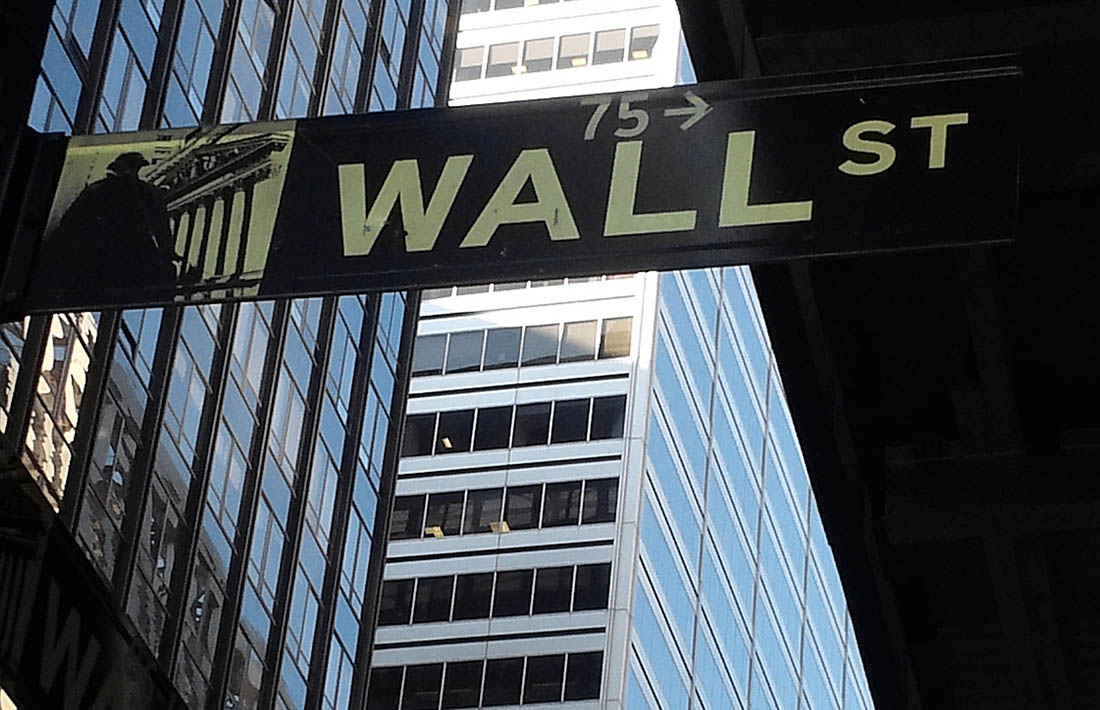(VIANEWS) – Apollo Commercial Real Estate Finance (ARI), Redwood Trust (RWT), Pitney Bowes (PBI) have the highest dividend yield stocks on this list.
| Financial Asset | Forward Dividend Yield | Updated (EST) |
|---|---|---|
| Apollo Commercial Real Estate Finance (ARI) | 12.81% | 2023-09-02 19:23:08 |
| Redwood Trust (RWT) | 7.99% | 2023-09-06 19:46:07 |
| Pitney Bowes (PBI) | 6.08% | 2023-09-06 07:46:09 |
| Kite Realty Group Trust (KRG) | 4.25% | 2023-09-05 07:06:06 |
| Equity Residential (EQR) | 4.13% | 2023-09-13 13:21:19 |
| Nuveen Minnesota Municipal Income Fund (NMS) | 4.08% | 2023-09-06 01:12:07 |
| ACNB Corporation (ACNB) | 3.57% | 2023-09-08 01:07:07 |
| PNM Resources (PNM) | 3.31% | 2023-09-06 13:08:07 |
| Ryder System (R) | 2.83% | 2023-09-06 15:48:07 |
Almost 2K companies listed in the Nasdaq and NYSE pay out dividends to its shareholders. The dividend yield is a dividend to price ratio showing how much a company pays out in dividends each year.
1. Apollo Commercial Real Estate Finance (ARI) – Dividend Yield: 12.81%
Apollo Commercial Real Estate Finance’s last close was $10.93, 14.27% below its 52-week high of $12.75. Intraday change was 0.09%.
Apollo Commercial Real Estate Finance, Inc. operates as a real estate investment trust (REIT) that primarily originates, acquires, invests in, and manages commercial first mortgage loans, subordinate financings, and other commercial real estate-related debt investments in the United States. It is qualified as a REIT under the Internal Revenue Code. As a REIT, it would not be subject to federal income taxes, if the company distributes at least 90% of its REIT taxable income to its stockholders. Apollo Commercial Real Estate Finance, Inc. was founded in 2009 and is based in New York, New York.
Earnings Per Share
As for profitability, Apollo Commercial Real Estate Finance has a trailing twelve months EPS of $0.83.
PE Ratio
Apollo Commercial Real Estate Finance has a trailing twelve months price to earnings ratio of 13.17. Meaning, the purchaser of the share is investing $13.17 for every dollar of annual earnings.
The company’s return on equity, which measures the profitability of a business relative to shareholder’s equity, for the twelve trailing months is 6.44%.
Dividend Yield
As stated by Morningstar, Inc., the next dividend payment is on Jun 28, 2023, the estimated forward annual dividend rate is 1.4 and the estimated forward annual dividend yield is 12.81%.
Moving Average
Apollo Commercial Real Estate Finance’s value is under its 50-day moving average of $11.05 and higher than its 200-day moving average of $10.84.
Yearly Top and Bottom Value
Apollo Commercial Real Estate Finance’s stock is valued at $10.93 at 03:15 EST, way below its 52-week high of $12.75 and way higher than its 52-week low of $7.91.
More news about Apollo Commercial Real Estate Finance.
2. Redwood Trust (RWT) – Dividend Yield: 7.99%
Redwood Trust’s last close was $7.79, 10.67% under its 52-week high of $8.72. Intraday change was -1.14%.
Redwood Trust, Inc., together with its subsidiaries, operates as a specialty finance company in the United States. The company operates through three segments: Residential Mortgage Banking, Business Purpose Mortgage Banking, and Investment Portfolio. The Residential Mortgage Banking segment operates a mortgage loan conduit that acquires residential loans from third-party originators for subsequent sale, securitization, or transfer to its investment portfolio. This segment also offers derivative financial instruments to manage risks associated with residential loans. The Business Purpose Mortgage Banking segment operates a platform that originates and acquires business purpose loans, such as single-family rental and bridge loans for subsequent securitization, sale, or transfer into its investment portfolio. The Investment Portfolio segment invests in securities retained from residential and business purpose securitization activities, and residential and small-balance multifamily bridge loans, as well as residential mortgage-backed securities issued by third parties, Freddie Mac K-Series multifamily loan securitizations and reperforming loan securitizations, servicer advance investments, home equity investments, and other housing-related investments. The company qualifies as a real estate investment trust (REIT) for federal income tax purposes. As a REIT, it intends to distribute at least 90% of its taxable income as dividends to shareholders. Redwood Trust, Inc. was incorporated in 1994 and is headquartered in Mill Valley, California.
Earnings Per Share
As for profitability, Redwood Trust has a trailing twelve months EPS of $-0.81.
The company’s return on equity, which measures the profitability of a business relative to shareholder’s equity, for the twelve trailing months is negative -7.3%.
Dividend Yield
As maintained by Morningstar, Inc., the next dividend payment is on Jun 21, 2023, the estimated forward annual dividend rate is 0.64 and the estimated forward annual dividend yield is 7.99%.
Moving Average
Redwood Trust’s worth is higher than its 50-day moving average of $7.21 and way above its 200-day moving average of $7.05.
Volume
Today’s last reported volume for Redwood Trust is 1081790 which is 13.96% below its average volume of 1257420.
Growth Estimates Quarters
The company’s growth estimates for the ongoing quarter and the next is 134.1% and 142.5%, respectively.
More news about Redwood Trust.
3. Pitney Bowes (PBI) – Dividend Yield: 6.08%
Pitney Bowes’s last close was $3.00, 38.14% under its 52-week high of $4.85. Intraday change was -8.81%.
Pitney Bowes Inc., a shipping and mailing company, provides technology, logistics, and financial services to small and medium-sized businesses, large enterprises, retailers, and government clients in the United States, Canada, and internationally. It operates through Global Ecommerce, Presort Services, and Sending Technology Solutions (SendTech Solutions) segments. The Global Ecommerce segment provides domestic parcel services, cross-border solutions, and digital delivery services. The Presort Services segment offers mail sortation services, which allow clients to qualify volumes of first-class mail, marketing mail, and bound and packet mail for postal work sharing discounts. The SendTech Solutions segment provides physical and digital mailing and shipping technology solutions and other applications for sending, tracking and receiving of letters, parcels, and flats as well as financing alternatives to finance equipment and product purchases. Pitney Bowes Inc. markets its products, solutions, and services through direct and inside sales force, global and regional partner channels, direct mailings, and digital channels. The company was formerly known as Pitney Bowes Postage Meter Company. Pitney Bowes Inc. was incorporated in 1920 and is headquartered in Stamford, Connecticut.
Earnings Per Share
As for profitability, Pitney Bowes has a trailing twelve months EPS of $-0.78.
Volume
Today’s last reported volume for Pitney Bowes is 3420710 which is 230.08% above its average volume of 1036310.
Dividend Yield
As stated by Morningstar, Inc., the next dividend payment is on Aug 20, 2023, the estimated forward annual dividend rate is 0.2 and the estimated forward annual dividend yield is 6.08%.
More news about Pitney Bowes.
4. Kite Realty Group Trust (KRG) – Dividend Yield: 4.25%
Kite Realty Group Trust’s last close was $22.57, 6.97% below its 52-week high of $24.26. Intraday change was 0%.
Kite Realty Group Trust is a full-service, vertically integrated real estate investment trust (REIT) that provides communities with convenient and beneficial shopping experiences. We connect consumers to retailers in desirable markets through our portfolio of neighborhood, community, and lifestyle centers. Using operational, development, and redevelopment expertise, we continuously optimize our portfolio to maximize value and return to our shareholders.
Earnings Per Share
As for profitability, Kite Realty Group Trust has a trailing twelve months EPS of $0.13.
PE Ratio
Kite Realty Group Trust has a trailing twelve months price to earnings ratio of 173.62. Meaning, the purchaser of the share is investing $173.62 for every dollar of annual earnings.
The company’s return on equity, which measures the profitability of a business relative to shareholder’s equity, for the twelve trailing months is 0.76%.
Sales Growth
Kite Realty Group Trust’s sales growth is 0.4% for the ongoing quarter and negative 0.1% for the next.
More news about Kite Realty Group Trust.
5. Equity Residential (EQR) – Dividend Yield: 4.13%
Equity Residential’s last close was $62.50, 19.79% below its 52-week high of $77.92. Intraday change was -1.31%.
Equity Residential is committed to creating communities where people thrive. The Company, a member of the S&P 500, is focused on the acquisition, development and management of residential properties located in and around dynamic cities that attract affluent long-term renters. Equity Residential owns or has investments in 304 properties consisting of 80,212 apartment units, with an established presence in Boston, New York, Washington, D.C., Seattle, San Francisco and Southern California, and an expanding presence in Denver, Atlanta, Dallas/Ft. Worth and Austin.
Earnings Per Share
As for profitability, Equity Residential has a trailing twelve months EPS of $2.13.
PE Ratio
Equity Residential has a trailing twelve months price to earnings ratio of 29.26. Meaning, the purchaser of the share is investing $29.26 for every dollar of annual earnings.
The company’s return on equity, which measures the profitability of a business relative to shareholder’s equity, for the twelve trailing months is 7.5%.
Volatility
Equity Residential’s last week, last month’s, and last quarter’s current intraday variation average was a negative 0.25%, a negative 0.12%, and a positive 0.89%.
Equity Residential’s highest amplitude of average volatility was 0.84% (last week), 0.67% (last month), and 0.89% (last quarter).
Volume
Today’s last reported volume for Equity Residential is 388917 which is 76.22% below its average volume of 1635710.
Yearly Top and Bottom Value
Equity Residential’s stock is valued at $62.31 at 03:15 EST, way below its 52-week high of $77.92 and way higher than its 52-week low of $54.60.
Sales Growth
Equity Residential’s sales growth is 4.5% for the current quarter and 4.6% for the next.
More news about Equity Residential.
6. Nuveen Minnesota Municipal Income Fund (NMS) – Dividend Yield: 4.08%
Nuveen Minnesota Municipal Income Fund’s last close was $10.55, 28.47% under its 52-week high of $14.75. Intraday change was -0.47%.
Nuveen Minnesota Quality Municipal Income Fund is a closed ended fixed income mutual fund launched by Nuveen Investments, Inc. The fund is co-managed by Nuveen Fund Advisors LLC and Nuveen Asset Management, LLC. It invests in the fixed income markets of the United States. The fund primarily invests in investment grade municipal securities that are exempt from regular federal and Minnesota personal income taxes. It seeks to invest in securities that are rated at least Baa/BBB or better by S&P, Moody's, or Fitch. The fund was formerly known as Nuveen Minnesota Municipal Income Fund. Nuveen Minnesota Quality Municipal Income Fund was formed on June 25, 1993 and is domiciled in the United States.
Earnings Per Share
As for profitability, Nuveen Minnesota Municipal Income Fund has a trailing twelve months EPS of $-0.52.
Volume
Today’s last reported volume for Nuveen Minnesota Municipal Income Fund is 8997 which is 3.28% below its average volume of 9303.
Yearly Top and Bottom Value
Nuveen Minnesota Municipal Income Fund’s stock is valued at $10.55 at 03:15 EST, way below its 52-week high of $14.75 and higher than its 52-week low of $10.33.
More news about Nuveen Minnesota Municipal Income Fund.
7. ACNB Corporation (ACNB) – Dividend Yield: 3.57%
ACNB Corporation’s last close was $31.40, 23.93% below its 52-week high of $41.28. Intraday change was -2.18%.
ACNB Corporation, a financial holding company, provides banking, insurance, and financial services to individual, business, and government customers in the United States. The company offers checking, savings, and money market deposit accounts, as well as time deposits and debit cards. It also provides commercial lending products, such as commercial mortgages, real estate development and construction loans, accounts receivable and inventory financing, and agricultural and governmental loans; consumer lending products, including home equity loans and lines of credit, automobile and recreational vehicle loans, manufactured housing loans, and personal lines of credit; and mortgage lending programs include personal residential mortgages, and residential construction and investment mortgage loans. In addition, the company provides other services that are related to testamentary trusts, life insurance trusts, charitable remainder trusts, guardianships, powers of attorney, custodial accounts, and investment management and advisory accounts; and retail brokerage services. Further, it acts as a trustee to invest in, protect, manage, and distribute financial assets. Additionally, the company offers property and casualty, health, life, and disability insurance products to commercial and individual clients; and online, telephone, and mobile banking, as well as automated teller machine services. As of December 31, 2021, it operated through a network of 19 community banking offices located in Pennsylvania, including 12 offices in Adams county, five offices in York county, one office in Cumberland County, and one office in Franklin County; five community banking offices located in Frederick County; six community banking offices located in Carroll county, Maryland; and loan offices located in Lancaster and York, Pennsylvania, and Hunt Valley, Maryland. The company was founded in 1857 and is headquartered in Gettysburg, Pennsylvania.
Earnings Per Share
As for profitability, ACNB Corporation has a trailing twelve months EPS of $4.57.
PE Ratio
ACNB Corporation has a trailing twelve months price to earnings ratio of 6.87. Meaning, the purchaser of the share is investing $6.87 for every dollar of annual earnings.
The company’s return on equity, which measures the profitability of a business relative to shareholder’s equity, for the twelve trailing months is 15.5%.
Moving Average
ACNB Corporation’s value is under its 50-day moving average of $33.29 and below its 200-day moving average of $34.40.
Revenue Growth
Year-on-year quarterly revenue growth grew by 8.9%, now sitting on 113.74M for the twelve trailing months.
Yearly Top and Bottom Value
ACNB Corporation’s stock is valued at $31.40 at 03:15 EST, way below its 52-week high of $41.28 and way higher than its 52-week low of $27.00.
Dividend Yield
As claimed by Morningstar, Inc., the next dividend payment is on Aug 30, 2023, the estimated forward annual dividend rate is 1.12 and the estimated forward annual dividend yield is 3.57%.
More news about ACNB Corporation.
8. PNM Resources (PNM) – Dividend Yield: 3.31%
PNM Resources’s last close was $44.17, 10.95% under its 52-week high of $49.60. Intraday change was 0.25%.
PNM Resources, Inc., through its subsidiaries, provides electricity and electric services in the United States. It operates through Public Service Company of New Mexico (PNM) and Texas-New Mexico Power Company (TNMP) segments. The PNM segment engages in the generation, transmission, and distribution of electricity. The segment owns and leases communication, office and other equipment, office space, vehicles, and real estate. It generates electricity using coal, natural gas and oil, nuclear fuel, solar, wind, and geothermal energy sources. The TNMP segment provides regulated transmission and distribution services. The segment also owns and leases vehicles, service facilities, and office locations throughout its service territory. The company serves residential, commercial, and industrial customers and end-users of electricity in New Mexico and Texas. PNM Resources, Inc. was founded in 1882 and is headquartered in Albuquerque, New Mexico.
Earnings Per Share
As for profitability, PNM Resources has a trailing twelve months EPS of $2.77.
PE Ratio
PNM Resources has a trailing twelve months price to earnings ratio of 15.99. Meaning, the purchaser of the share is investing $15.99 for every dollar of annual earnings.
The company’s return on equity, which measures the profitability of a business relative to shareholder’s equity, for the twelve trailing months is 11.32%.
Moving Average
PNM Resources’s worth is below its 50-day moving average of $44.81 and below its 200-day moving average of $47.43.
Sales Growth
PNM Resources’s sales growth is 20.2% for the present quarter and negative 41.8% for the next.
Dividend Yield
As claimed by Morningstar, Inc., the next dividend payment is on Aug 9, 2023, the estimated forward annual dividend rate is 1.47 and the estimated forward annual dividend yield is 3.31%.
More news about PNM Resources.
9. Ryder System (R) – Dividend Yield: 2.83%
Ryder System’s last close was $100.21, 3.47% under its 52-week high of $103.81. Intraday change was -0.21%.
Ryder System, Inc. operates as a logistics and transportation company worldwide. It operates through three segments: Fleet Management Solutions (FMS), Supply Chain Solutions (SCS), and Dedicated Transportation Solutions (DTS). The FMS segment offers full-service leasing and leasing with flexible maintenance options; commercial vehicle rental services; and contract or transactional maintenance services of trucks, tractors, and trailers; access to diesel fuel; and fuel planning and tax reporting, cards, and monitoring services, and centralized billing, as well as sells used vehicles through its retail sales centers and www.ryder.com/used-trucks website. The DTS segment offers equipment, maintenance, drivers, administrative, and additional services, as well as routing and scheduling, fleet sizing, safety, regulatory compliance, risk management, and technology and communication systems support services. The SCS segment comprises distribution management services, such as designing and managing customer's distribution network and facilities; coordinating warehousing and transportation for inbound and outbound material flows; handling import and export for international shipments; coordinating just-in-time replenishment of component parts to manufacturing and final assembly; and offering shipments to customer distribution centers or end customer delivery points, as well as other value added services, such as light assembly of components. This segment also offers transportation management and brokerage services, such as shipment optimization, load scheduling, and delivery confirmation services; knowledge-based professional services; and e-commerce and last mile services. The company was founded in 1933 and is headquartered in Miami, Florida.
Earnings Per Share
As for profitability, Ryder System has a trailing twelve months EPS of $11.51.
PE Ratio
Ryder System has a trailing twelve months price to earnings ratio of 8.69. Meaning, the purchaser of the share is investing $8.69 for every dollar of annual earnings.
The company’s return on equity, which measures the profitability of a business relative to shareholder’s equity, for the twelve trailing months is 19.19%.
Growth Estimates Quarters
The company’s growth estimates for the present quarter and the next is a negative 28.5% and a negative 25.7%, respectively.
Revenue Growth
Year-on-year quarterly revenue growth declined by 4.9%, now sitting on 11.96B for the twelve trailing months.
Yearly Top and Bottom Value
Ryder System’s stock is valued at $100.00 at 03:15 EST, under its 52-week high of $103.81 and way above its 52-week low of $65.69.
More news about Ryder System.










